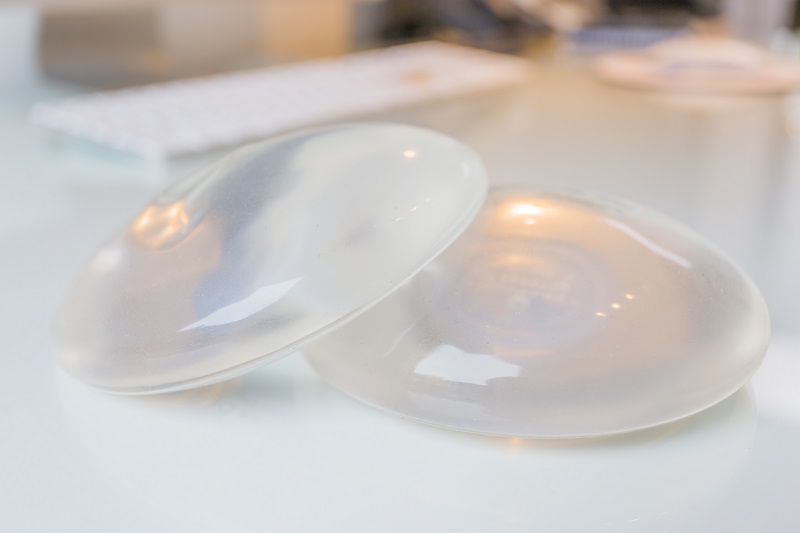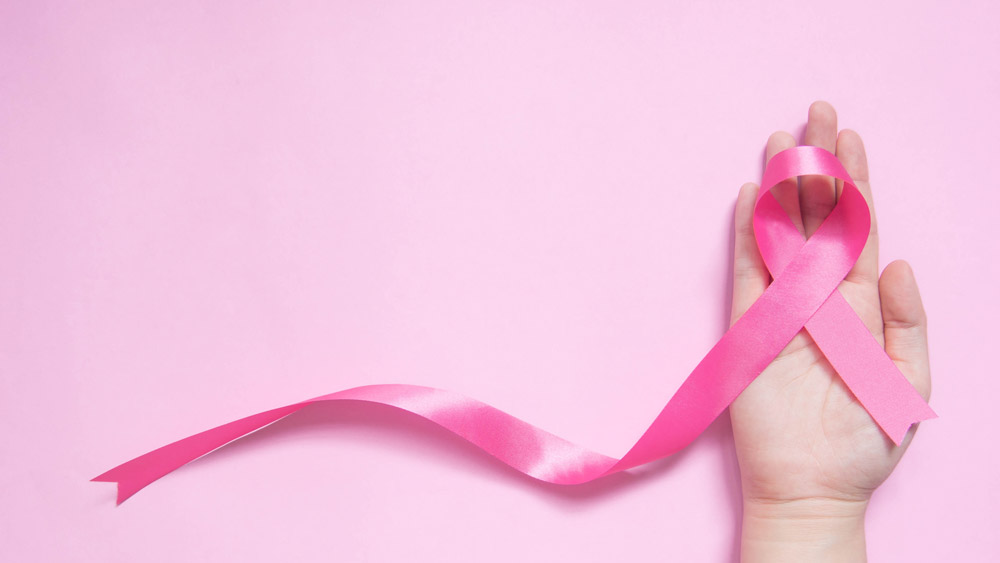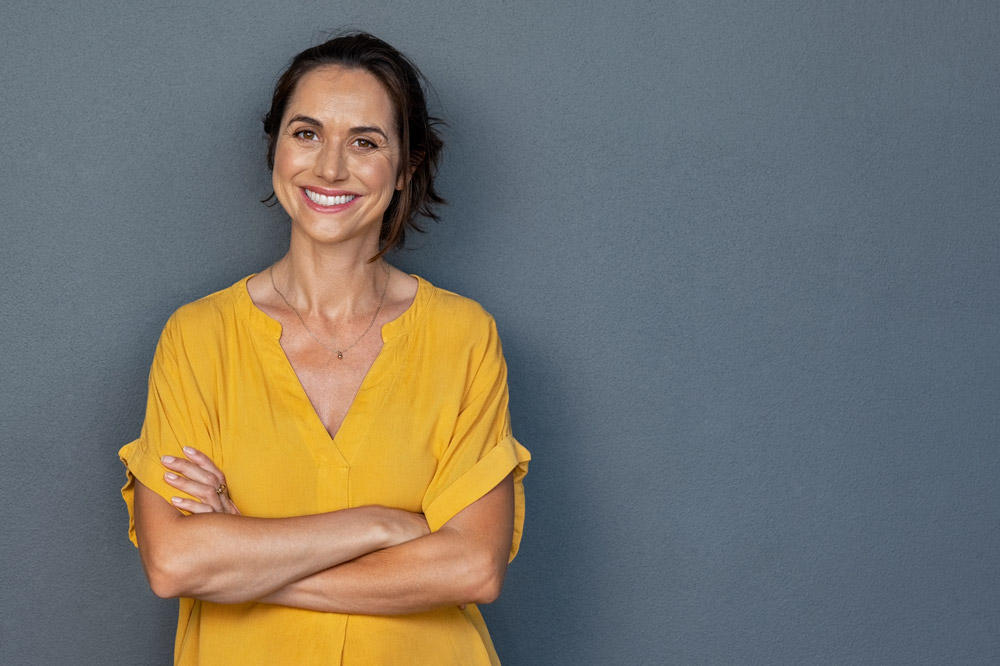Implants are often a very good option for reconstructing the breast following mastectomy. However, when breast implants are placed before or after radiation therapy, there is an increased incidence of aesthetic and physical issues that arise. Potential problems can include severe hardening of scar tissue around the implant, chest wall discomfort, changes in implant position, and even implant loss.
Resultant breast implant issues can severely affect quality of life. To potentially improve adverse changes caused by radiation, autologous tissue breast reconstruction may be an excellent solution. Autologous tissue reconstruction involves transfer of excess tissue, often from the abdominal wall, to the chest to create the new breast. This involves specialized techniques of microsurgery.
Dr. Jay Orringer is a double board-certified plastic surgeon with over 30 years of breast reconstruction experience. He is also fellowship-trained in microsurgery.
How Does Radiation Affect Breast Implants?
Radiation often has serious adverse effects on both breast reconstructions and breast augmentations. The presence of a breast implant does not prevent radiation therapy from working. However, this cancer treatment can have an undesirable impact on the tissue surrounding an implant.
 The body considers a breast implant a foreign object and isolates it with a barrier of protective scar tissue. This tissue, known as a capsule, is usually soft and unnoticeable. However, chest wall radiation increases the chance that the tissue capsule will harden and contract around an implant, creating a breast that is frequently tight, high in position, hard, and uncomfortable. This is a condition known as capsular contracture.
The body considers a breast implant a foreign object and isolates it with a barrier of protective scar tissue. This tissue, known as a capsule, is usually soft and unnoticeable. However, chest wall radiation increases the chance that the tissue capsule will harden and contract around an implant, creating a breast that is frequently tight, high in position, hard, and uncomfortable. This is a condition known as capsular contracture.
Prior radiation to the chest wall can also create unique challenges for implant-based reconstruction in the future. For example, radiation permanently adversely affects skin and underlying tissue quality. As a result, the risk of complications and poor aesthetic outcome are significantly increased following radiation.
Potential Implant Complications and Failure
Whether an implant is placed before or after radiation, the radiation will adversely affect the quality of an implant reconstruction. In addition to capsular contracture, you may experience the following breast implant problems:
- Implant displacement and asymmetry
- Adverse changes in breast shape, size, or position
- Thinning of tissues
- Hardening of scar tissue around an implant (capsular contracture)
- Implant loss due to poor healing or poor-quality tissue
Breast implants may need to be removed to remedy these issues. When this happens, it is known as a failed implant reconstruction. A failed reconstruction can be devastating, especially if subsequent implant-based reconstructions continue to produce less than optimal results.
Post-Radiation Breast Reconstruction Challenges
While the intensity of the radiation effects may decrease with time, the changes are still permanent and can make certain reconstruction approaches challenging. Attempting to satisfactorily expand the scarred post-radiation tissues is often not possible.
Similarly, placing an implant to fill a post-radiation defect is often ineffective because the scarring is most severe at the site of the previous tumor. The implant may fill the breast everywhere but where you need it the most.
Autologous Tissue Reconstruction after Radiation
In some circumstances, post-radiation implant results may be satisfactory, particularly in the shorter term. However, when implant-based reconstruction fails or creates an undesirable result, autologous tissue reconstruction can potentially offer you a much more natural, comfortable, and long-term outcome.
 Excess skin and fat can be transferred usually from the abdomen (DIEP flap), buttocks (SGAP flap), or back (TDAP flap). Unlike an implant, these autologous tissue flap options, taken from another part of the body, bring in their own blood supply and may improve the quality of the radiated chest wall tissues. Blood vessels are reconnected under the microscope to complete the transplant of healthy tissue. The donor site, particularly when the abdomen is used, may have a nicely improved contour.
Excess skin and fat can be transferred usually from the abdomen (DIEP flap), buttocks (SGAP flap), or back (TDAP flap). Unlike an implant, these autologous tissue flap options, taken from another part of the body, bring in their own blood supply and may improve the quality of the radiated chest wall tissues. Blood vessels are reconnected under the microscope to complete the transplant of healthy tissue. The donor site, particularly when the abdomen is used, may have a nicely improved contour.
If you are experiencing ongoing aesthetic issues or implant complications due to radiation or other factors, autologous tissue reconstruction may be appropriate for you. Dr. Orringer will take the time to understand your unique situation to determine if autologous tissue reconstruction might meet your needs.
Radiation and Failed Implant Reconstruction FAQs
Is flap surgery my only option after radiation? My surgeon says I can't have implants.
Breast reconstruction is a unique procedure customized to each patient and her circumstances. If you know that you will require radiation after your mastectomy, discuss your reconstructive options with our double-board-certified plastic surgeon, Dr. Jay Orringer.
Post-mastectomy radiation treatment makes reconstruction with breast implants challenging and often less satisfactory. Implants in the setting of radiation are prone to capsular contracture (scar tissue that tightens around the implant that may cause pain and deformity), infection, and extrusion (implant loss).
 A 2020 study published in the Journal of Clinical Oncology evaluated the integration of breast reconstruction and postmastectomy radiotherapy. Researchers found that patients who had implant reconstruction after receiving radiation therapy were less satisfied with their results than women with implants and no radiation therapy. However, women with autologous reconstruction (reconstruction using one’s own tissue), with and without radiation, experienced similar satisfaction rates.
A 2020 study published in the Journal of Clinical Oncology evaluated the integration of breast reconstruction and postmastectomy radiotherapy. Researchers found that patients who had implant reconstruction after receiving radiation therapy were less satisfied with their results than women with implants and no radiation therapy. However, women with autologous reconstruction (reconstruction using one’s own tissue), with and without radiation, experienced similar satisfaction rates.
Consequently, autologous tissue flap surgery is often the preferred reconstruction method in the setting of radiation because it usually avoids implants. If radiation therapy is anticipated, a tissue expander will often be placed at the time of the skin-sparing or nipple-sparing mastectomy. After initial healing from radiation, the expander may be replaced with a DIEP flap from the abdominal wall or an SGAP flap from the upper buttock.
How does radiation affect breast reconstruction results in patients with implants?
 Radiation therapy may cause the reconstructed breast to become much firmer and to sit higher on the chest. When the radiated tissue around an implant, called a capsule, becomes firm, this is known as capsular contracture. If only one breast requires radiation, breast asymmetry will usually develop. Our double-board-certified plastic surgeon may recommend a breast lift or implant placement on the unaffected breast to improve symmetry.
Radiation therapy may cause the reconstructed breast to become much firmer and to sit higher on the chest. When the radiated tissue around an implant, called a capsule, becomes firm, this is known as capsular contracture. If only one breast requires radiation, breast asymmetry will usually develop. Our double-board-certified plastic surgeon may recommend a breast lift or implant placement on the unaffected breast to improve symmetry.
Capsular contracture caused by radiation can lead to discomfort and breast distortion. Dr. Orringer may recommend addressing this complication with breast explant (implant removal) and replacing the implant with autologous tissue from the abdominal wall or upper buttock to improve the breast softness, shape, and comfort. Particularly following radiation, women typically feel that reconstructions with tissue are more comfortable and more natural in feel and appearance.
When is the best time for breast reconstruction after radiation?
While a tissue expander is often placed at the time of the mastectomy, implant placement or a flap procedure is typically done at least six months after completion of radiation therapy. However, the optimal timing for your procedure is individualized and best determined after a thorough discussion with your medical and radiation oncologist, and plastic surgeon. To discuss your breast reconstructive options, schedule a consultation with double board-certified, internationally known Beverly Hills plastic surgeon, Dr. Jay Orringer, at 310-273-1663. Dr. Orringer welcomes patients from Beverly Hills, Los Angeles, Santa Monica, Hollywood, Newport Beach, Northern California, nationally and internationally.
Schedule Your Beverly Hills Consultation
Please contact us to schedule your caring and individualized consultation with Dr. Orringer today. He will be happy to discuss your options for potentially correcting failed or unsatisfactory implant reconstructions due to radiation or other causes. We proudly welcome patients from Beverly Hills, Los Angeles, Santa Monica, Hollywood, Newport Beach, and Northern California, as well as nationally and internationally.








